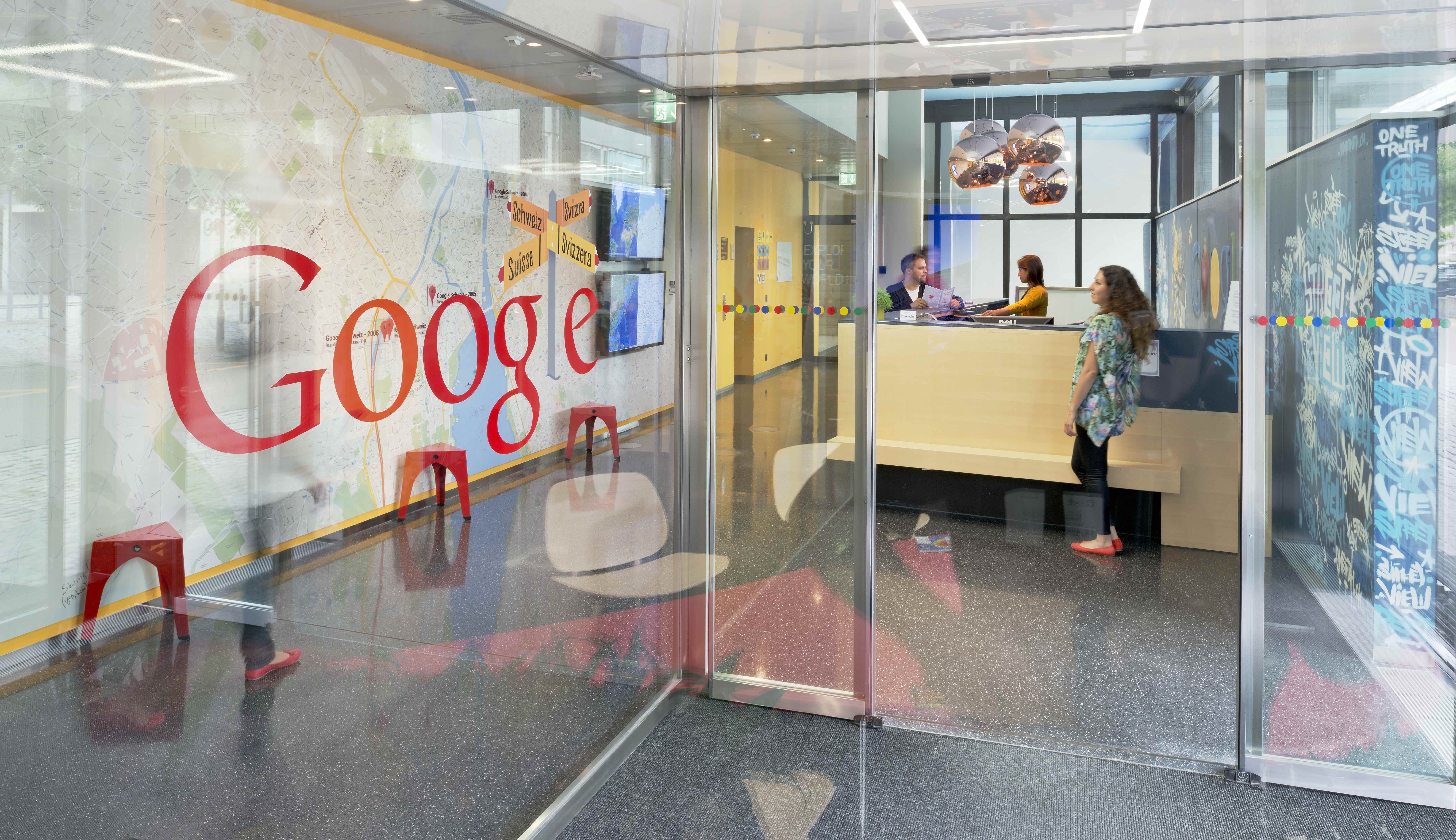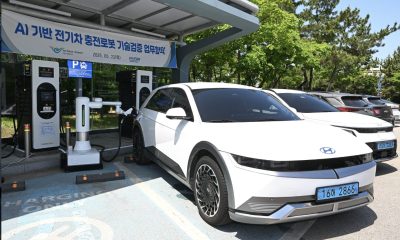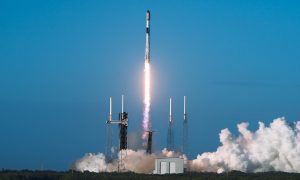As a company with a global presence to the tune of at least a billion people, Google is taking both its immense tech capabilities and social responsibility role very seriously. Namely, it has pledged to provide tangible support to organizations wanting to help address societal challenges using artificial intelligence through its just announced “AI Impact Challenge”. Whether an idea needs coaching, grant funding from a pool of $25 million available, or credit and consulting from cloud services, Google will be there to help.
Towards this effort, the company has already provided an educational guide to machine learning, the primary tool it wants organizations to utilize in its problem-solving. It might seem counterintuitive for a proposer to need training on the very thing it’s proposing, but this is part of the point of Google’s support. To quote Google’s project page directly, “We want people from as many backgrounds as possible to surface problems that AI can help solve, and to be empowered to create solutions themselves…We don’t expect applicants to be AI experts.” Submissions are open until January 22, 2019, and winners will be announced in spring 2019.
Need inspiration for an idea? Or, perhaps, some examples of the kinds of problems that artificial intelligence can help solve? Google’s page dedicated to its “AI for social good” mission has featured projects that are already working towards societally beneficial goals. Here’s a breakdown of some of them:
- The “Smart Wildfire Sensor” is a device that identifies and predicts areas in a forest that are susceptible to wildfires. To do this, it uses data from tools measuring wind speed, wind direction, humidity, and temperature combined with Google’s open source machine learning tool TensorFlow for photographic analysis of biomass (accumulated fallen branches and trees).
- Protecting whales from preventable accidents such as entanglement in fishing gear and collisions with vessels is a challenge being addressed using whale songs and machine learning to locate where they’re singing from. The National Oceanic and Atmospheric Administration (NOAA) uses underwater audio recordings to identify and mitigate the presence of dangers in the estimated areas where whales are present. The thousands of hours of recordings accumulated presented a data challenge well suited to Google’s existing sound classification AI to help meet NOAA’s needs with conservation efforts.
- As a top cause of infant mortality in the world, birth asphyxia is a serious threat needing all the tools available to new parents. Using machine learning trained to recognize the cries of a newborn with this condition, the company Ubenwa has developed a mobile app enabling a recording of a baby’s cry to be uploaded and diagnosed.
“With great power comes great responsibility” is a familiar motto that applies to the state of modern tech just as much as superheroes. For example, the fast-paced field of artificial intelligence brings frequent developments that challenge our security as a society, thus needing caution. However, the massive companies driving the primary innovations being used among the public on a grand scale are one of the larger demonstrations of this where this motto really applies in today’s world.
Google sharply felt the weight of its responsibility recently when its role in assisting the US Department of Defense to analyze drone footage (Project Maven) was revealed. The “Don’t be evil” part of the company’s Code of Conduct at the time appeared to be violated through the military assistance, and renewal of the contract has since been canceled. Google’s further work on its Chinese search engine with censorship in accordance with the communist government’s requirements has also drawn protest from both inside and outside the company. Given this background, a new project focused on doing “good” things for the benefit of society might be seen as possible damage control. The timing might be suspect, but it’s worth noting that, as seen in the projects described above, Google has been working to help with societal needs for quite some time already.
Overall, headlines in recent years have demonstrated just how flexible AI can be when it comes to solving challenges that face our world. While the fears brought on by future “intelligent” computers may have a foundation in reality, it may do us a great amount of good to turn our focus on the hope such technology can also bring. Whatever Google’s motivation is for launching its “AI for social good project”, if good is achieved, it may just be a win for us all.
News
Tesla UK sales see 14% year-over-year rebound in June: SMMT data
The SMMT stated that Tesla sales grew 14% year-over-year to 7,719 units in June 2025.

Tesla’s sales in the United Kingdom rose in June, climbing 14% year-over-year to 7,719 units, as per data from the Society of Motor Manufacturers and Traders (SMMT). The spike in the company’s sales coincided with the first deliveries of the updated Model Y last month.
Model Y deliveries support Tesla’s UK recovery
Tesla’s June performance marked one of its strongest months in the UK so far this year, with new Model Y deliveries contributing significantly to the company’s momentum.
While the SMMT listed Tesla with 7,719 deliveries in June, independent data from New AutoMotive suggested that the electric vehicle maker registered 7,891 units during the month instead. However, year-to-date figures for Tesla remain 2% down compared to 2024, as per a report from Reuters.
While Tesla made a strong showing in June, rivals are also growing. Chinese automaker BYD saw UK sales rise nearly fourfold to 2,498 units, while Ford posted the highest EV growth among major automakers, with a more than fourfold increase in the first half of 2025.
Overall, the UK’s battery electric vehicle (BEV) demand surged 39% to to 47,354 units last month, helping push total new car sales in the UK to 191,316 units, up 6.7% from the same period in 2024.
EV adoption accelerates, but concerns linger
June marked the best month for UK car sales since 2019, though the SMMT cautioned that growth in the electric vehicle sector remains heavily dependent on discounting and support programs. Still, one in four new vehicle buyers in June chose a battery electric vehicle.
SMMT Chief Executive Mike Hawes noted that despite strong BEV demand, sales levels are still below regulatory targets. “Further growth in sales, and the sector will rely on increased and improved charging facilities to boost mainstream electric vehicle adoption,” Hawes stated.
Also taking effect this week was a new US-UK trade deal, which lowers tariffs on UK car exports to the United States from 27.5% to 10%. The agreement could benefit UK-based EV producers aiming to expand across the country.
News
Tesla Model 3 ranks as the safest new car in Europe for 2025, per Euro NCAP tests
Despite being on the market longer than many of its rivals, the Tesla Model 3 continues to set the bar for vehicle safety.

The Tesla Model 3 has been named the safest new car on sale in 2025, according to the latest results from the Euro NCAP. Among 20 newly tested vehicles, the Model 3 emerged at the top of the list, scoring an impressive 359 out of 400 possible points across all major safety categories.
Tesla Model 3’s safety systems
Despite being on the market longer than many of its rivals, the Tesla Model 3 continues to set the bar for vehicle safety. Under Euro NCAP’s stricter 2025 testing protocols, the electric sedan earned 90% for adult occupant protection, 93% for child occupant protection, 89% for pedestrian protection, and 87% for its Safety Assist systems.
The updated Model 3 received particular praise for its advanced driver assistance features, including Tesla’s autonomous emergency braking (AEB) system, which performed well across various test scenarios. Its Intelligent Speed Assistance and child presence detection system were cited as noteworthy features as well, as per a WhatCar report.
Other notable safety features include the Model 3’s pedestrian-friendly pop-up hood and robust crash protection for both front and side collisions. Euro NCAP also highlighted the Model 3’s ability to detect vulnerable road users during complex maneuvers, such as turning across oncoming traffic.
Euro NCAP’s Autopilot caution
While the Model 3’s safety scores were impressive across the board, Euro NCAP did raise concerns about driver expectations of Tesla’s Autopilot system. The organization warned that some owners may overestimate the system’s capabilities, potentially leading to misuse or inattention behind the wheel. Even so, the Model 3 remained the highest-scoring vehicle tested under Euro NCAP’s updated criteria this year.
The Euro NCAP’s concerns are also quite interesting because Tesla’s Full Self-Driving (FSD) Supervised, which is arguably the company’s most robust safety suite, is not allowed for public rollout in Europe yet. FSD Supervised would allow the Model 3 to navigate inner city streets with only minimal human supervision.
Other top scorers included the Volkswagen ID.7, Polestar 3, and Geely EX5, but none matched the Model 3’s total score or consistency across categories. A total of 14 out of 20 newly tested cars earned five stars, while several models, including the Kia EV3, MG ZS, and Renault 5, fell short of the top rating.
Elon Musk
Why Tesla’s Q3 could be one of its biggest quarters in history
Tesla could stand to benefit from the removal of the $7,500 EV tax credit at the end of Q3.

Tesla has gotten off to a slow start in 2025, as the first half of the year has not been one to remember from a delivery perspective.
However, Q3 could end up being one of the best the company has had in history, with the United States potentially being a major contributor to what might reverse a slow start to the year.
Earlier today, the United States’ House of Representatives officially passed President Trump’s “Big Beautiful Bill,” after it made its way through the Senate earlier this week. The bill will head to President Trump, as he looks to sign it before his July 4 deadline.
The Bill will effectively bring closure to the $7,500 EV tax credit, which will end on September 30, 2025. This means, over the next three months in the United States, those who are looking to buy an EV will have their last chance to take advantage of the credit. EVs will then be, for most people, $7,500 more expensive, in essence.
The tax credit is available to any single filer who makes under $150,000 per year, $225,000 a year to a head of household, and $300,000 to couples filing jointly.
Ending the tax credit was expected with the Trump administration, as his policies have leaned significantly toward reliance on fossil fuels, ending what he calls an “EV mandate.” He has used this phrase several times in disagreements with Tesla CEO Elon Musk.
Nevertheless, those who have been on the fence about buying a Tesla, or any EV, for that matter, will have some decisions to make in the next three months. While all companies will stand to benefit from this time crunch, Tesla could be the true winner because of its sheer volume.
If things are done correctly, meaning if Tesla can also offer incentives like 0% APR, special pricing on leasing or financing, or other advantages (like free Red, White, and Blue for a short period of time in celebration of Independence Day), it could see some real volume in sales this quarter.
You can now buy a Tesla in Red, White, and Blue for free until July 14 https://t.co/iAwhaRFOH0
— TESLARATI (@Teslarati) July 3, 2025
Tesla is just a shade under 721,000 deliveries for the year, so it’s on pace for roughly 1.4 million for 2025. This would be a decrease from the 1.8 million cars it delivered in each of the last two years. Traditionally, the second half of the year has produced Tesla’s strongest quarters. Its top three quarters in terms of deliveries are Q4 2024 with 495,570 vehicles, Q4 2023 with 484,507 vehicles, and Q3 2024 with 462,890 vehicles.
-

 Elon Musk4 days ago
Elon Musk4 days agoTesla investors will be shocked by Jim Cramer’s latest assessment
-

 News1 week ago
News1 week agoTesla Robotaxi’s biggest challenge seems to be this one thing
-

 Elon Musk2 weeks ago
Elon Musk2 weeks agoFirst Look at Tesla’s Robotaxi App: features, design, and more
-

 News2 weeks ago
News2 weeks agoWatch Tesla’s first driverless public Robotaxi rides in Texas
-

 News2 weeks ago
News2 weeks agoSpaceX and Elon Musk share insights on Starship Ship 36’s RUD
-

 News1 week ago
News1 week agoWatch the first true Tesla Robotaxi intervention by safety monitor
-

 News2 weeks ago
News2 weeks agoTesla has started rolling out initial round of Robotaxi invites
-

 Elon Musk2 weeks ago
Elon Musk2 weeks agoTesla to launch in India in July with vehicles already arriving: report





















